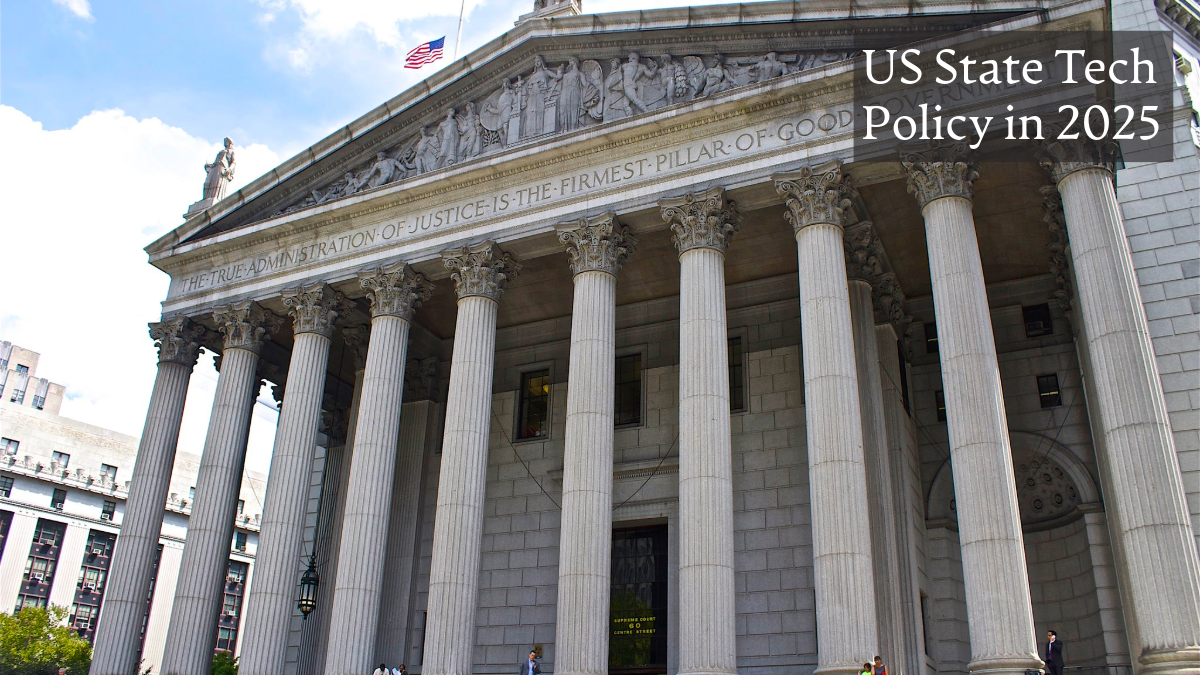Three Ways State Courts Can Get Ready for the Coming Rise in Emerging Technology Cases
Michele Benedetto Neitz / Jan 7, 2025
New York State Supreme Court (Tristan Reville, Flickr)
States have long been at the forefront of emerging technology law. Their leading position makes sense, as most state legislatures and agencies are nimble and able to pivot more quickly than federal lawmakers. Indeed, the variety of issues considered by state legislatures and agencies is part of the joy of working at the state level.
However, in the wake of the 2024 election, state actors are about to be faced with an unreasonable challenge. In the absence of comprehensive legislative frameworks, states will be the backstops for emerging technology law. This is particularly true for legal issues around artificial intelligence and blockchain technology.
Congress has yet to pass any comprehensive federal legislative framework for two of the most transformative technologies of our time: decentralized technology and artificial intelligence.
Numerous reasons exist for this failure, including increased partisanship and election distraction, the steep learning curve, and the rapid pace of innovation, which make it challenging for lawmakers to fully grasp these industries. With a Republican majority in the House and the Senate, it is possible that this situation could change in 2025.
In the meantime, one might expect federal agencies to use their broad authority and rulemaking power to address emerging technology regulation. However, federal agencies have seen their power diminished by the Supreme Court’s decision in Loper Bright Enterprises et al. v. Raimondo et al. The 2024 ruling overturned the “Chevron doctrine” of judicial deference to executive agencies' regulatory decisions, meaning that agencies may have a reduced role in regulating new technologies in cases where Congress has not expressly given them the authority to do so. Moreover, President-elect Trump has indicated his plans to reshape federal agencies and eliminate numerous regulations. This shift away from agency oversight highlights the need for the federal judiciary to prepare for its own expanded role in shaping emerging technology policy.
While the implications of Loper Bright play out in the federal judiciary, state legislatures are not sitting idle. Indeed, it is state actors who are leading the way when it comes to emerging tech regulation. For example, the New York legislature created a “Bitlicense” for businesses seeking to facilitate virtual currency transactions in 2015. The Wyoming legislature applied its “Limited Liability Company” (LLC) Act to decentralized autonomous organizations in 2021. California’s legislature passed several bills related to various aspects of AI in 2024, though Governor Gavin Newsom vetoed a sweeping bill that sought to regulate AI harms, explaining that a risk-based approach would be more appropriate in his view.
What does this mean for state courts? More legislation means more litigation as parties challenge the new laws, requiring state courts to prepare for a surge in emerging technology law cases. One possible approach to deal with this shift is the creation of specialized “Emerging Tech Courts,” modeled after the Delaware Chancery Court or the new Texas Business Court. State Emerging Tech Courts would allow judges interested in emerging technology to develop deep expertise, enabling cases to move quickly and building up state precedent. In turn, this approach would attract more technology companies to that jurisdiction.
States would need to address several challenges, including defining the term “emerging tech cases” and creating procedures for jurisdiction and appeals processes for these courts. The cost of the courts would also be high, at least initially. However, with enough political will (and the economic desire to lure tech companies to a particular state), state tech courts could become a reality.
Even in the absence of specialized courts, there are two additional ways that state judges can get ready for the rise of emerging technology cases heading to their chambers. First, states must increase resources for judicial tech education and training. Unfortunately, the trend is heading in the opposite direction, as exemplified by the $97 million reduction in funding to California trial courts in 2024. It is unreasonable to expect state court judges and staff to be able to keep up with the technical developments necessary to decide emerging tech cases without more education.
Judges can lean on colleges and universities for such trainings. For instance, in my capacity as the Founding Director of the Center for Law, Tech, and Social Good at the University of San Francisco School of Law, I have trained over 1,000 government officials on technical, legal, and ethical issues around blockchain and AI since 2022. In addition, Duke Law School’s Bolch Judicial Institute also offers training for judges. Collaborations between colleges, including community colleges and state courts, can offer some relief. But in an underfunded and overworked state court, it may also be that judges and their staff do not have time for these additional activities.
Thus, following the model of “Chief AI officers” in executive agencies and “Tech Fellows” in Congressional offices, state court judges should have funding to hire “technical advisers” as full-time staff members. These advisers could ensure that judges have a neutral expert who would offer foundational training, answer specific technical questions related to cases, and help judges keep up with current developments.
There are a number of practical reasons a Tech Fellow program may be hard to build in state courts, specifically related to budgetary concerns. Courts must also screen these neutral experts to ensure they are not biased toward or against a particular industry. But these concerns can be alleviated. For example, states seeking to be known as the “go-to” state for technology companies might see this as a good investment; companies may be more willing to incorporate in a state that can offer experts in courts, even if an expert “Tech Court” is beyond reach. Delaware’s position as a corporate law leader is a strong example of the power of expertise to attract business. With some preparation now, state courts can play a lead role in developing emerging technology law.
This post is part of a series examining US state tech policy issues in the year ahead.
Authors
